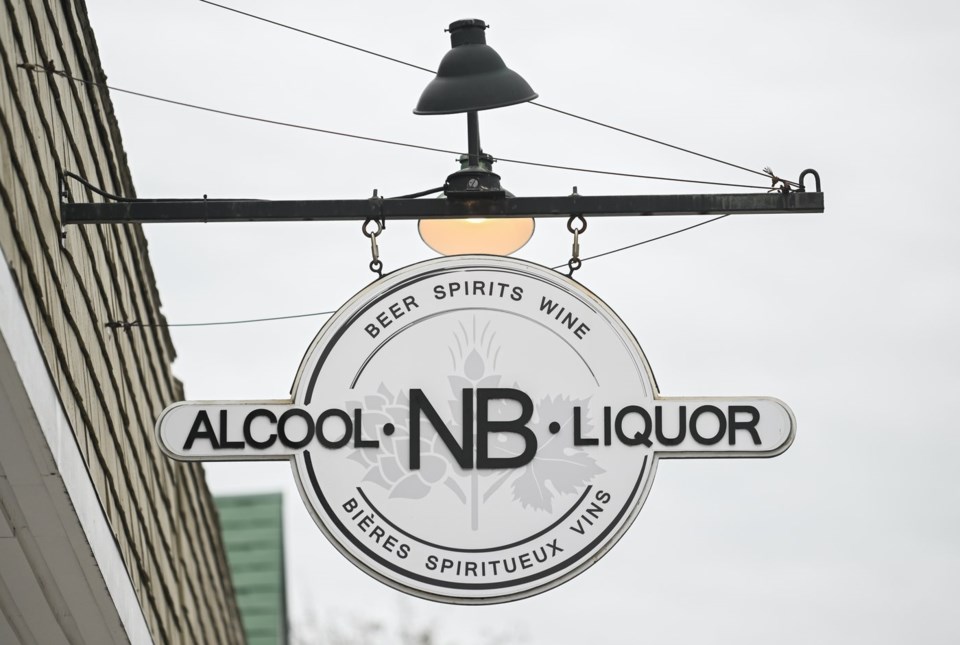FREDERICTON — The owner of a New Brunswick vodka distillery says he anticipates competition to get tougher as the provincial government pursues new rules to remove trade barriers with the rest of Canada.
"It's already a busy market, it doesn't need more," said Trent Jewett, who owns Big Fiddle Still, a company that sells flavour-infused vodka.
Jewett was reacting to the news the New Brunswick government is planning to allow companies to sell alcohol directly to consumers across provincial and territorial borders.
The government said it is developing regulations to implement this change and other recent amendments to the provincial Liquor Control Act.
Jewett said he has no issues with efforts to remove trade barriers. He noted that many restrictions remain in place that make it harder for smaller companies to compete outside of New Brunswick and that gives some larger competitors an advantage.
"Some provinces treat others differently," he said in an interview with The Canadian Press. "It's harder for us to access those markets, whereas it's easier for them to enter into New Brunswick."
The proposal to loosen trade rules appears to mark a shift from New Brunswick's previous regulations around alcohol.
In April 2018, the province won a case at Canada's Supreme Court against a man fined $300 for buying beer in Quebec and bringing it home to New Brunswick.
But the province said the new rules would remove limits on how much liquor people can bring into the province for personal consumption.
New Brunswick and other Canadian jurisdictions have been exploring efforts to improve trade within Canada to blunt the impacts of U.S. President Donald Trump's tariffs. New Brunswick did not confirm which jurisdictions had agreed to their proposal, but on Monday, Alberta and Ontario also signed an agreement to "improve" alcohol sales between the two provinces.
Paul Bradley, spokesman for the New Brunswick government, said the provinces would unveil a memorandum of understanding with a full list of participants at an interprovincial meeting in Quebec City on Tuesday.
Christine Comeau, executive director of Canadian Craft Brewers Association, said she doesn't think the new rules will be a "game changer" for the industry.
"The nature of craft beer is that it's heavy and it's hyper local," she said. "People do love supporting their local craft brewery and while there are occasions where a craft beer fan in Canada is going to excitedly order from a different province, it doesn't happen frequently enough that it is really going to change the game for Canadian craft brewers."
One of the challenges that comes with craft beer is that it could spoil when shipped, she noted, adding there are ways to manage that issue.
Those outside New Brunswick can now buy craft beer from the province without penalty but there's probably not a lot of people who are going to want to do it, she said.
"(Changes in rules will) help a little bit, but I don't believe so in a meaningful way."
Meanwhile, Jewett said the trade war with the United States has given his distillery a boost.
Soon after it started, he said he developed three different flavoured products to replace an American liqueur called Sour Puss that is used in cocktails. The new products brought in a 26 per cent hike in his sales, he said.
Jewett said he welcomes people from other provinces coming over and enjoying his vodka, and even buying it to take it home. But he said his company is doing well in the New Brunswick market and has no immediate plans to seek shelf space in a store in another Canadian province.
"We're not going to explore that option to leave the province with our product. We're going to stay here," he said.
"It's a competitive market. You've got to put pride in the bottle. The times, they are a changing, daily."
This report by The Canadian Press was first published July 7, 2025.
The Canadian Press



